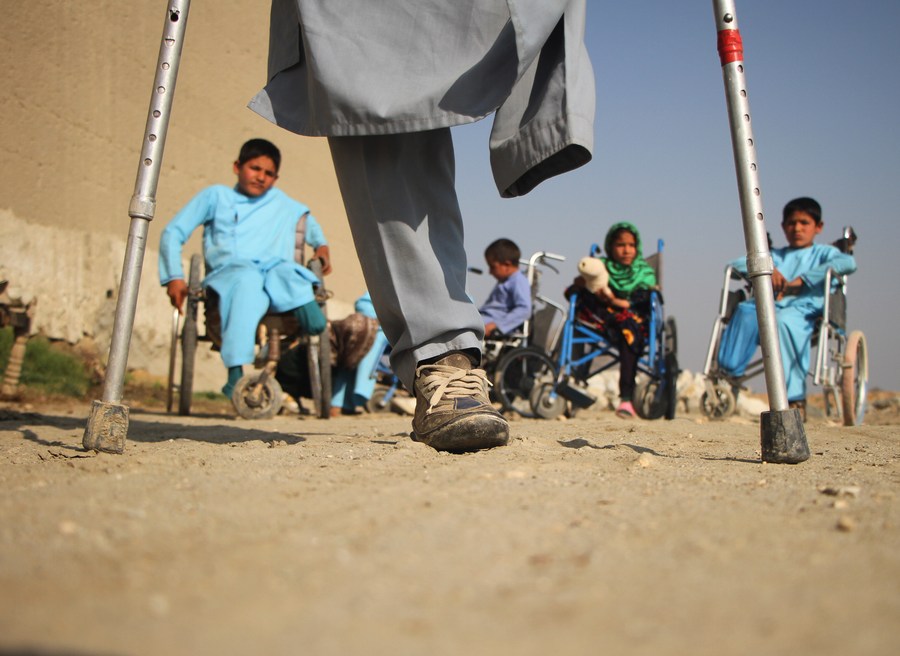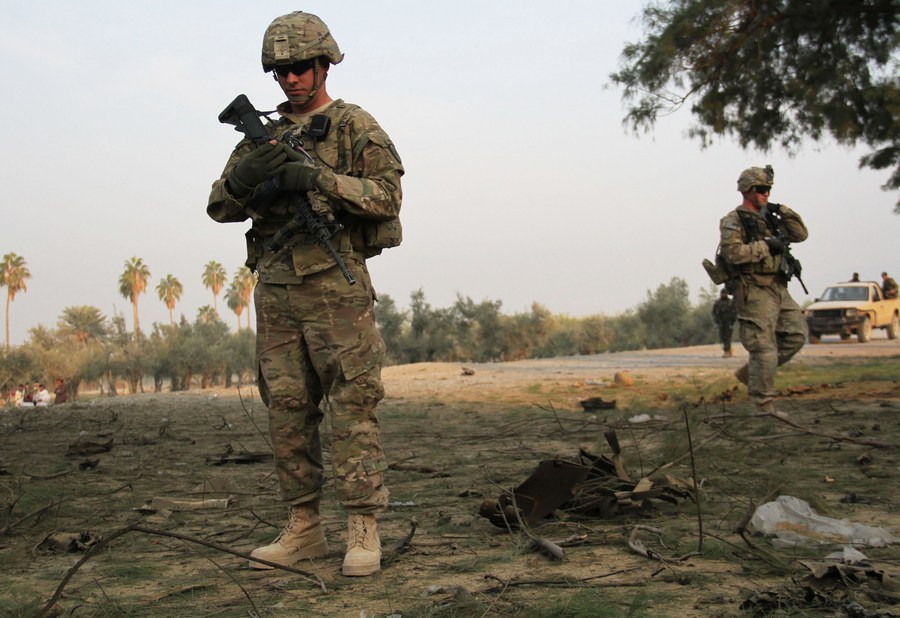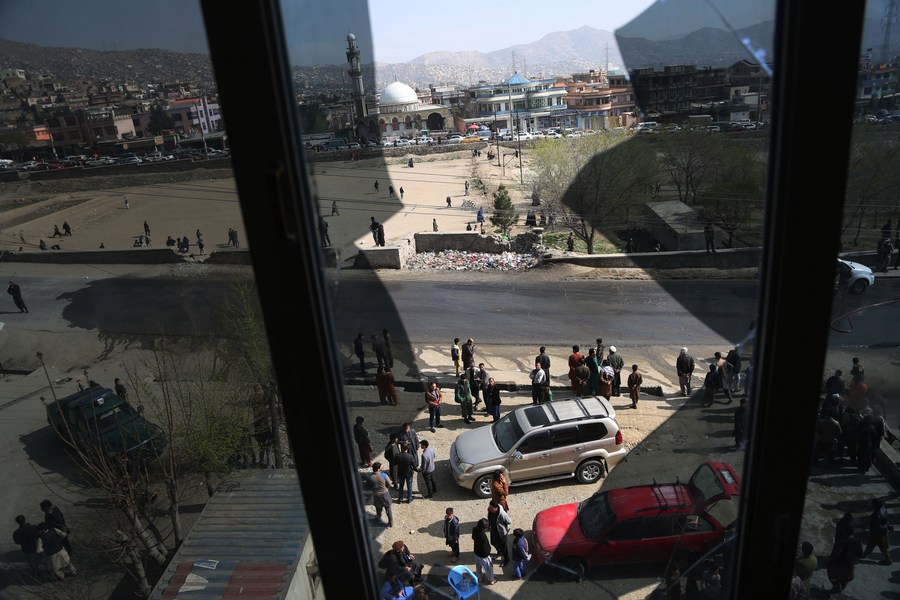
As the security situation in Afghanistan remains complicated and terrorism keeps festering, analysts deem the U.S. decision as irresponsible and warn against an intensifying civil conflict and more rampant terrorist acts.
by Shi Xiantao, Abdul Haleem
KABUL, April 16 (Xinhua) -- U.S. President Joe Biden announced Wednesday that all U.S. troops will be withdrawn from Afghanistan before Sept. 11, a decision to end the longest war in American history.
Since entering Afghanistan in October 2001, the U.S. troops have caused more than 30,000 civilian deaths, injured more than 60,000 and made about 11 million people become refugees.
As the security situation in Afghanistan remains complicated and terrorism keeps festering, analysts deem the U.S. decision as irresponsible and warn against an intensifying civil conflict and more rampant terrorist acts.

IRRESPONSIBLE DECISION
Worrying about deteriorating domestic situation, some high-ranking officials in Afghanistan publicly expressed their disappointment with the U.S. decision to withdraw troops without establishing a peace process.
"The withdrawal of these forces is a desire of the Afghan people, but at the moment, the conditions have not been made for this to happen. There is a possibility of the return of civil war," said Mir Rahman Rahmani, speaker of the lower house of the Afghan parliament.
The Afghan people generally believed that the United States should help Afghanistan to establish a strong government and reduce armed conflicts, but it failed to deliver on its promises and harmed the interests of the Afghan people.
Kabul resident Mohammad Ayub expressed concern that the pull-out of U.S. forces could lead to factional fighting in Afghanistan, as many armed groups and warlords still exist in the country.
"It risks civil war, ethnic cleansing, partition and terrorist sanctuary -- all just to bring home a few thousand troops, before a peace process is even attempted," Brookings Institution Senior Fellow Michael O'Hanlon told Xinhua.
The United States decided to withdraw its troops without substantial progress in the peace talks, said Zhu Yongbiao, director of the Research Center for Afghanistan at China's Lanzhou University.
Under the current circumstances, a complete withdrawal of U.S. troops will further aggravate the political chaos in Afghanistan and, at the same time, worsen the security situation. The internal conflict in Afghanistan is likely to intensify and eventually turn into civil war, said Zhu.

MORE RAMPANT TERRORISM
Noting that the United States has achieved counterterrorism objectives in the war, Biden said, "It is time for American troops to come home."
However, Afghans believe that the United states, instead of eradicating terrorism, has been cultivating and using various extreme terrorist organizations in Afghanistan to serve its own interests, and after the U.S. troops withdrawal, terrorism will become more rampant.
According to Afghan media reports, al-Qaida is currently operating in 18 provinces across the country.
"The United States invaded Afghanistan to diminish terrorists but the terrorist groups are more powerful than the past," Farakh Shah, a Kabul resident, told Xinhua.
"The United States, as a big power, is not a reliable friend, because over the past 20 years it has failed to win the war on terror," another Afghan resident Mohammad Iqbal said.
Noting the United States has decided to withdraw when militant groups in Afghanistan are active, Afghan expert Shamsul Haq Arianfar said it will complicate the security situation in the country.
(Matthew Rusling also contributed to the story.)













